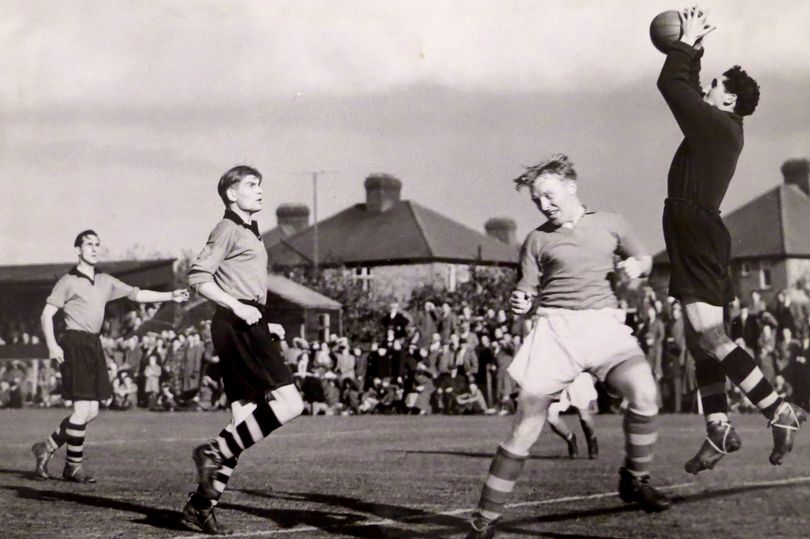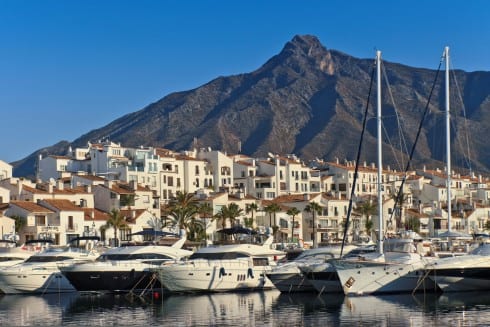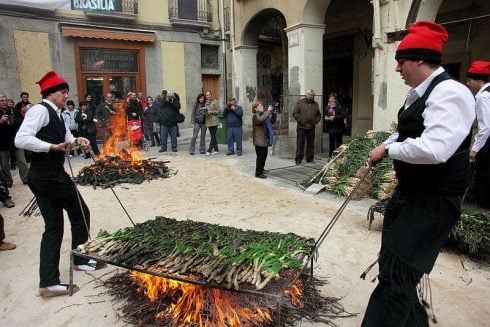WAS it a cultural thing? Nature vs.Nurture? Was there something in the water? Their DNA? What follows traces the plight of six Basque adolescents, their time in England and the very positive role football played in their lives.
In the spring of 1937, the Spanish Civil War raged and the Basque Country was under siege. It was fiercely Republican (anti-Franco) surrounded by Nationalist held territory.
The Basque Country had become the testing ground for the concept of ‘total war’ replete with Franco-ordered bombing raids over civilian population centres (think Guernica!). Thousands were killed.
Local authorities decided to evacuate 4,000 children to spare them from the nightmare which surrounded them. Most were brought to Southampton and held in ‘detention’ camps. Slowly the children were dispersed throughout Britain into the homes of all levels of British society.
Sabino Barinaga was one of those boys. He arrived in Southampton at age 15 accompanied by two of his siblings. Before long he was spotted as an athletic talent by school officials and later, by Southampton Football Club.
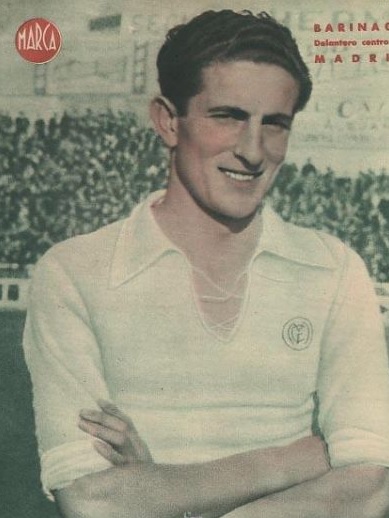
At age 18, he spent time with the club’s reserve team scoring 62 goals in 18 games (you read that correctly!) in one season.
In 1940, as WWII threatened England, Sabino returned to Spain to join Real Madrid, where he had the honour of scoring the first goal ever at the Santiago Bernabeu stadium.
Loaned to Real Valladolid as an inside forward, he scored 38 league goals in 48 games.
He retired in 1955 but coached at the highest level of international football for the next 27 years. He died in 1988 in Durango, Spain. He was known locally as ‘El Ingles de Durango’.
The goalkeeper on that team was Raimundo Perez Lezama. At age 18, Raimundo made his first-team debut with Southampton Football Club in 1940.
Like his teammate Sabino, he eventually would return to Spain, signing with Athletic Bilbao. He helped the La Liga club retain the cup in 1944, 1945 and 1950. Raimundo won the Ricardo Zamora Trophy (1946) as the league’s best goalkeeper.
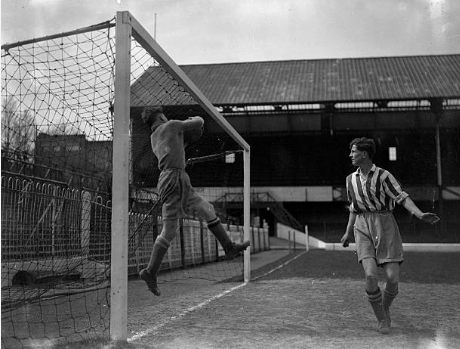
Antonio and Jose Gallego were sent to a family home in Cambridge after their father was killed in Guernica.
Known as ‘Tony and Joe’, the two became local celebrities. Both brothers were recruited by local coaches who recognised their special talents. Left-winger Jose’s career started with Colchester United in the Second Division. He finished his professional playing days with Cambridge United and played competitive minor league football well into his 50’s.
Brother Antonio, aka Tony, was in goal for the Norwich City team for two seasons but returned to his ‘beloved Cambridge’ (his words) shortly thereafter. He is the only one of this group of Basque footballers to remain in the UK throughout his adult life.
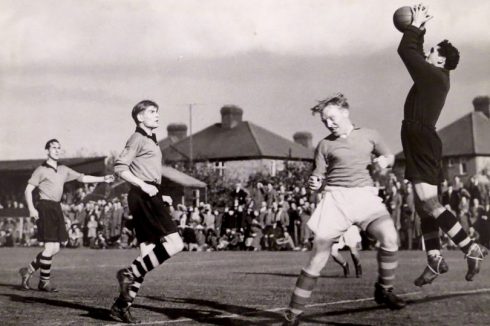
Emilio Aldecoa was the very first Basque refugee footballer to play in the English professional leagues.
In the 1943-44, Emilio was the top goal scorer for Wolverhampton (Wolves) Wanderers with 11 goals in 30 games. He moved on to Coventry City, scoring on his debut against Portsmouth. His practical skills were also much appreciated when he helped repair the Highfield Road stadium as well as the home of the family he was staying with.
By 1946 Emilio returned to Spain and joined his hometown team Athletic Bilbao. He finished his career with FC Barcelona where they won the league twice and three Copa del Rey titles.
For the better part of the next three decades, Emilio coached and managed the Girona F.C. team.
As a young boy in his small Basque village, Jose Bilbao was said to be so coordinated that he could trap a five-peseta coin tossed high into the air. This athleticism translated into extraordinary dribbling skills on the pitch. For two years with Coventry City , he bamboozled defenders as the key scorer in an already high scoring Coventry team. But homesickness and injuries ultimately brought Jose back to his native Biscay Province.
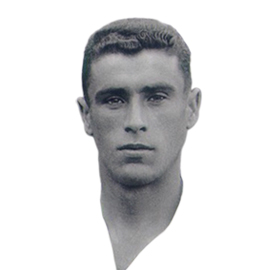
Locals remember ‘Coventry’(his nickname) as he always proudly displayed his league championship ring.
‘Coventry’ enjoyed his retirement years picking mushrooms in the nearby mountains while often enjoying the local drink patxaran (aniseed and wine).
Initially, life could not have been easy for these young Basques. They were separated from their parents and their country and worried about their fates.
There were language and cultural differences and, although welcomed by their English host families and football fans, they lived with the stigma of being outsiders.
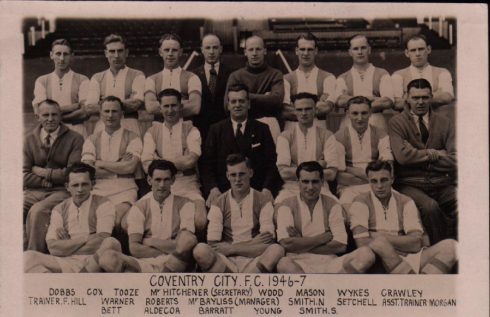
Coventry team featuring Aldecoa 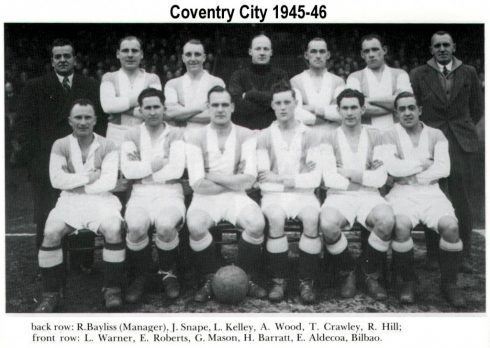
Coventry line up with Aldecoa and Bilbao 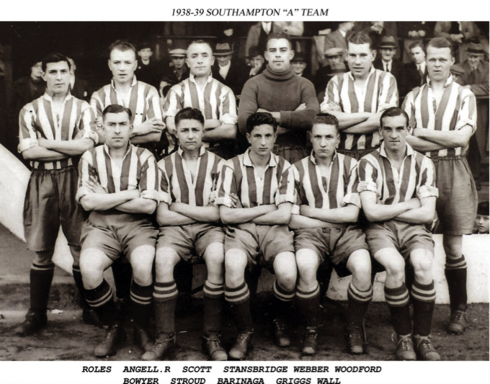
Southampton team with Barinaga 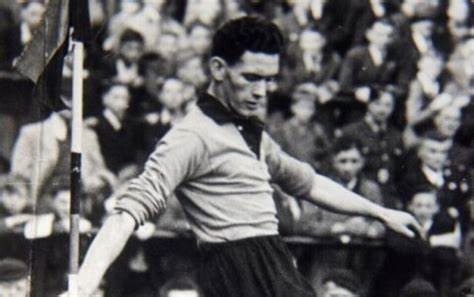
Aldecoa 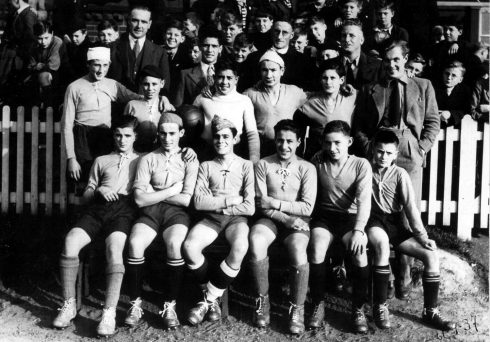
The Norwich team
But the young Basque footballers found solace in the form of football. They excelled and thrived using football as a venue for success.
Their experience serves as an example of how sport can be a powerful means of positive integration both for the participants and their fans.
The Tokyo Summer Olympics are just round the corner. It is interesting to note that the International Olympic Committee defines its official mission as ‘recognising sport as a metaphor for overcoming obstacles and achieving against adversity’.
o Sabino, Raimundo, ‘Tony & Joe’, Emilio and ‘Coventry’ we say: “Well done boys!”
READ MORE:
- She’s Dynamite! (literally): Civil War heroine who took the fight to Spain’s men
- How Henry VIII gambled away the crown to a cheeky Spaniard
- LONG READ: Jack Gaioni reveals the fascinating story of Lola Montez, the fake Spanish dirty dancer who captured a…

